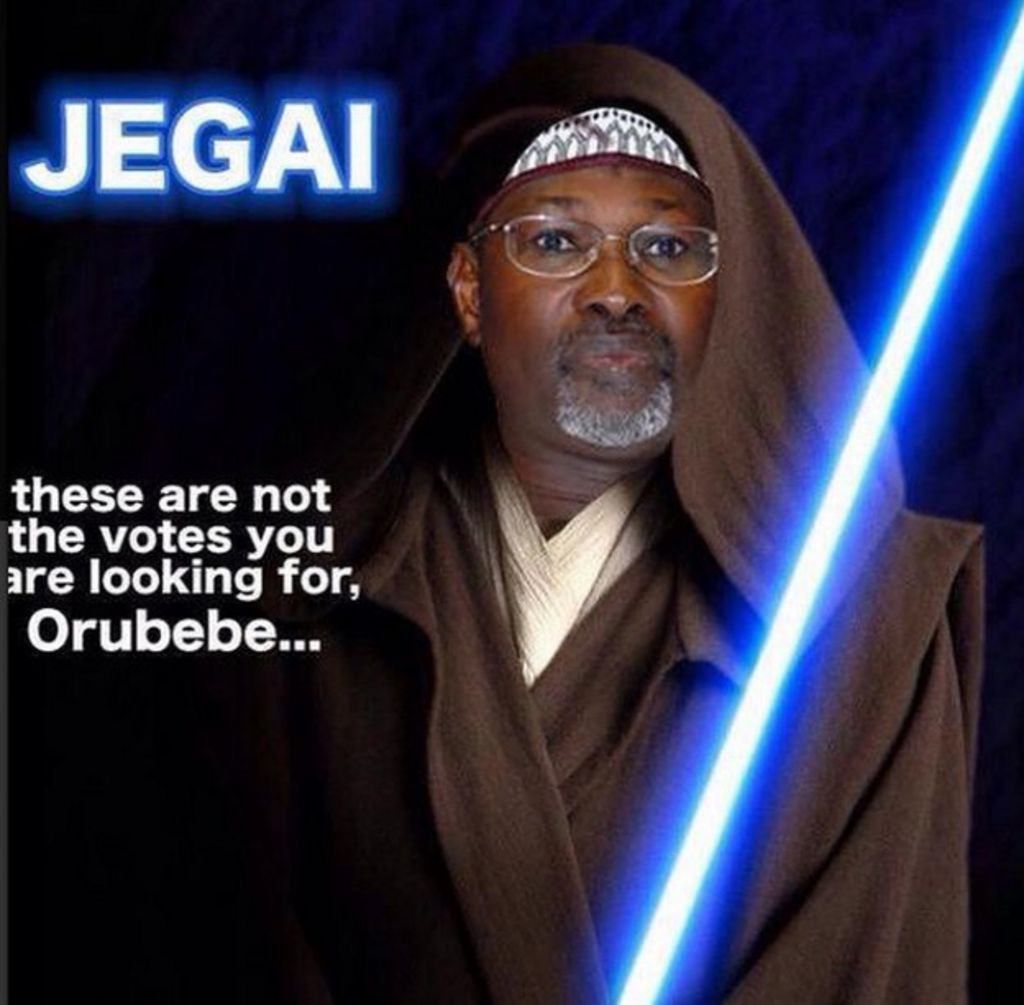Unmasking The Nigerian Prince Meme: Origins & Online Impact
Does the mention of a "Nigerian Prince" immediately conjure images of hilariously bad grammar and improbable riches? The enduring popularity of the Nigerian Prince meme, a fixture of internet culture, speaks volumes about our collective fascination with scams, the absurdity of the online world, and the unexpected humor that can be found within it.
The roots of this internet phenomenon run deep, intertwining with the history of fraud and the evolving landscape of digital communication. Its emergence offers a fascinating glimpse into the ways in which scams adapt, how humor blossoms in the face of adversity, and the lasting impact of digital folklore.
The Nigerian Prince meme is intrinsically linked to the infamous "419 scam," a fraudulent scheme originating in Nigeria and named after Section 419 of the Nigerian Criminal Code. This section specifically addresses fraud. This type of scam typically involves an unsolicited email or letter from an individual, often posing as a Nigerian prince or a government official. These messages promise the recipient a substantial sum of money. In exchange, the victim is asked to assist with moving funds out of the country. The promises are alluring, often involving millions of dollars, but the "assistance" inevitably requires upfront payments. These payments can include fees for various purposes, such as legal expenses, taxes, or bribes, which are then sent to the scammers.
| Feature | Description |
|---|---|
| The Promise | Large sums of money, often millions of dollars, are promised to the recipient. |
| The Premise | Money needs to be moved out of Nigeria for various reasons (political unrest, inheritance, etc.). |
| The Ask | Recipients are asked to provide financial assistance upfront, often through wire transfers or other means. |
| The Language | Often characterized by poor grammar, spelling errors, and unusual phrasing. |
| The Persona | Frequently involves a Nigerian prince, government official, or other figure of authority. |
| The Goal | To extract money from the recipient through deception. |
The Nigerian Prince scam is not a modern invention, although the digital age certainly provided it with new channels for dissemination. The seeds of this type of deception were sown long before the advent of the internet. Tracing the ancestry of the Nigerian Prince scam reveals a fascinating history of deception and the exploitation of human greed.
In fact, the predecessors of the 419 fraud can be traced back to the decades following the French Revolution. Swindling schemes, designed to separate the unwary from their money, have been in existence for centuries. One of the most well-known early examples is the "Spanish Prisoner" scam. This scheme, which gained traction in the 19th century, involved a supposed wealthy prisoner in Spain. Con artists would contact potential victims, promising them a share of the prisoner's fortune in exchange for helping to secure his release. Like the Nigerian Prince scam, this scheme demanded upfront payments, which the con artists would pocket.
The evolution of the Nigerian Prince scam, from its pre-digital origins to its widespread presence online, is a testament to the adaptability of fraud. As technology advanced, so did the methods used to perpetrate these schemes. With the rise of the internet and email, fraudsters found a massive, largely anonymous audience. They began sending out mass emails, casting a wide net to lure in unsuspecting victims. The relative ease of sending these emails, coupled with the anonymity afforded by the internet, made it easy to reach millions of potential targets with minimal effort.
The hallmark of any successful Nigerian Prince scam is its atrocious grammar and spelling. While it might seem counterintuitive, this is actually a deliberate tactic. The poor quality of the language serves as a filter. It weeds out those who are more discerning and less likely to fall for the scam, leaving only the most gullible and desperate. This allows the scammers to focus their efforts on the individuals most likely to provide them with financial gain. The poor writing is, paradoxically, a feature, not a bug.
The cultural impact of the Nigerian Prince scam extends far beyond the realm of fraud. It has become a significant element of digital humor, spawning countless memes, jokes, and parodies. The meme has become a staple of internet culture, amusing users while simultaneously serving as a cautionary tale about the perils of online communication. The meme takes on a life of its own, allowing people to laugh at the absurdity of the situation and to share their own experiences and observations. In a world bombarded by spam emails, the Nigerian Prince meme offers a moment of levity.
The "Nigerian Prince" meme has become a ubiquitous form of online expression. It's a way of commenting on, and making light of, the digital landscape itself. From image macros and animated GIFs to humorous videos and witty captions, the meme has found its way into countless online conversations. People create their own versions of the meme, adding their own unique twists and perspectives. The meme allows users to express themselves creatively, while also reflecting on the world around them.
The meme represents more than just a scam; it symbolizes the absurdity of the internet itself. It is a reminder that sometimes, the best jokes come from the most unexpected places. The meme taps into our collective awareness of online scams, and the humor arises from the audacity of the deception and the predictable nature of the scams execution. The humor also derives from the fact that the scam is so easily identifiable that it's almost unbelievable that people still fall for it.
The meme's ability to resonate with such a wide audience is partly due to its universality. Anyone with an email address is likely to have received a scam email, which provides a common ground for humor. The meme has become a shared language, a way for people to connect and share experiences related to online scams. The recognition of the meme instantly creates a sense of familiarity and understanding among its viewers.
The popularity of the Nigerian Prince meme is also tied to the ease with which it can be adapted and repurposed. People can easily create and share their own versions of the meme. There are many online tools available for making memes, allowing people to add custom text, images, and other elements to templates. The user-friendliness of these tools fosters creativity and participation, and it also ensures that the meme remains relevant and current.
The use of the meme also serves a dual purpose: entertainment and awareness. By satirizing the scam, the meme raises awareness about the dangers of online fraud, acting as a reminder to be cautious about unsolicited emails and requests for money. The meme reminds us to be vigilant in the digital world, which is very important. It is a constant reminder of the risks that are present, and it encourages people to think twice before clicking on a suspicious link or responding to an unknown sender.
While the original scams may have been intended to defraud, the meme has become a tool for education and awareness. As we navigate an increasingly complex digital world, this type of humor can be a powerful way of conveying important messages about online safety.
The stories of individuals who have fallen victim to these scams serve as a stark reminder of the real-world consequences. The emotional and financial costs can be devastating. Consider the case of an elderly man who lost a significant amount of money after being targeted by a Nigerian Prince scam. The man, who lived alone, was lonely and vulnerable. He was drawn in by the promise of companionship and financial security. He sent money to the scammers over a period of several months, only to realize too late that he had been defrauded.
The Nigerian Prince scam has become so deeply ingrained in the online landscape that it has even found its way into mainstream entertainment. In the movie "Freeloaders," the Nigerian Prince trope is cleverly employed. The prince, who asks one of the main characters for money, turns out to be genuine, handing over a large inheritance. This ironic twist is a testament to the enduring appeal of the scam, and its ability to be adapted and repurposed for comedic effect. The popularity of this particular parody highlights how the meme has moved beyond its original purpose, to become a cultural touchstone.
The impact of the Nigerian Prince meme extends far beyond the realm of simple entertainment. It demonstrates how quickly and profoundly online phenomena can shape our culture. The meme serves as a commentary on human nature and a reflection of our relationship with technology. It is a testament to the power of creativity, humor, and storytelling. It is a reminder that even in the face of deceit, there is always room for laughter and learning. The story of the Nigerian Prince meme is a fascinating tale of adaptation, resilience, and the enduring power of digital storytelling.
The story of Toshua Parker, a U.S. college student and hacker in 2000, also highlights the interplay between technology and scams. This true story, which involved an American student who got involved in a hacking and fraud scheme, further underlines how these kinds of scams can be targeted and exploited. The case illustrates the sophisticated strategies used in these scams and highlights the vulnerabilities that exist within the digital realm.
The continued prominence of the Nigerian Prince meme is a reminder of the ever-evolving nature of the internet and the importance of staying informed about emerging online threats. While the meme might make us laugh, it's essential to remain vigilant and protect ourselves from fraudulent schemes. The Nigerian Prince meme, in its absurdity and humor, serves as a modern-day cautionary tale.
So, next time you receive an email promising untold riches, remember the Nigerian Prince. And maybe, just maybe, take a moment to appreciate the absurdity of it all and the enduring power of a good meme.


